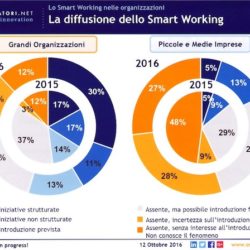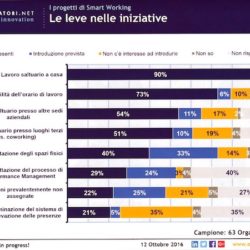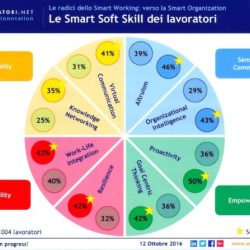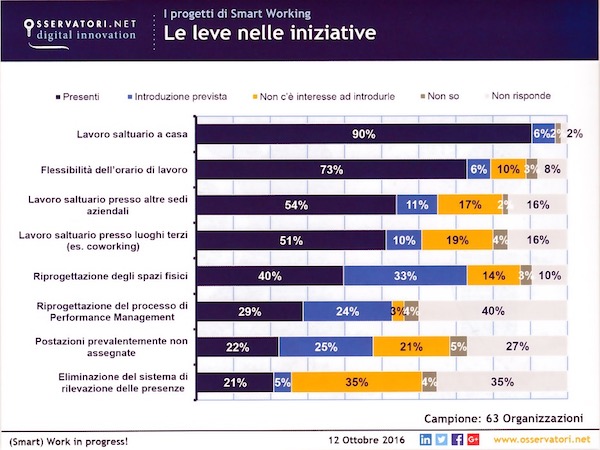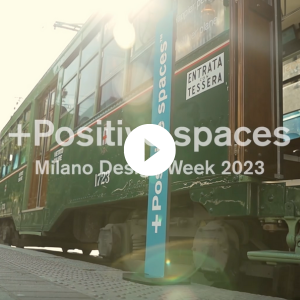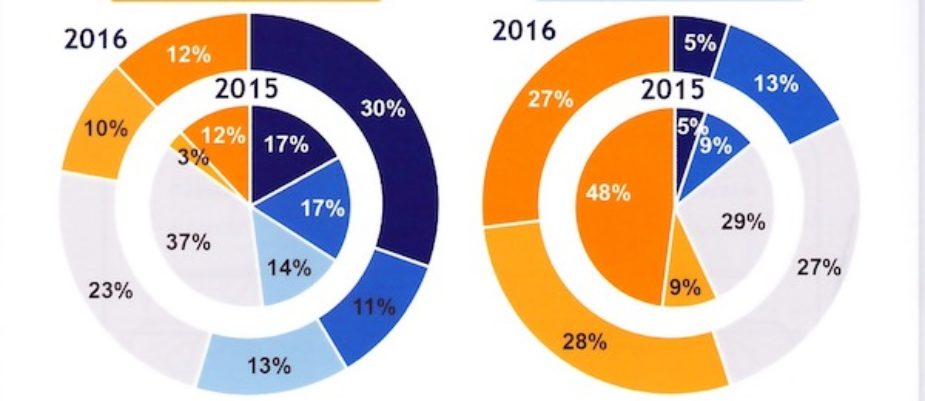
Smart Working is a work in progress as proved by the results coming from this most interesting meeting for the presentation of the survey 2016 by Osservatorio Smart Working of Politecnico di Milano.
It shows interesting data, shares experiences and awarded the best practices, among these the SW implementation in subito.it, winner of the Smart Working Award 2016.
WOW! is partner of Osservatorio Smart Working.
The survey 2016 shows the liveliness of a “phenomenon going now viral” in Italy, as quoted prof. Mariano Corso, scientific manager of Osservatorio Smart Working.
People ask for more flexibility , because strict rules produce a widespread frustration.
30% of big enterprises has an organized Smart Working activity (17% in 2015), as against just 5% in small and medium-sized enterprises, although awareness is growing, yet with some uncertainty about the introducing of Smart Working.
35% of firms are still at the experimental stage while 40% are already extending the project, and 25% may be considered as running regularly.
However, being smart working a work in progress a constant monitoring is necessary, explained Ilaria Santambrogio of Plantronics and Alessandra Stasi of Barilla.
Also important, the definition of places; home working is carried out just on and off , corporate hubs, third spaces and coworking are growing and offices feature hybrid space layouts, focused on , desk sharing and time and place flexibility .
“Smart Working also means to create offices where people “want” go to work, quoted Lorenzo Maresca of Sedus.
According to Doxa survey, Smart Workers in Italy are about 250,000.
What about criticalities in implementing Smart Working?
The real time survey by Twitter shows that 37% points out lack of coordination and planning, 30% lack of personal maturity and discipline and only 7% worries about work intensification.
Rules and regulations are at 99% made by mature people -quoted Alessandra Stasi- featuring soft skill and a good response to unexpected occurrences – and the remaining 1% either takes advantage or cannot handle them.
The more people are level-headed and complete the more organizational wellbeing the company will attain.

